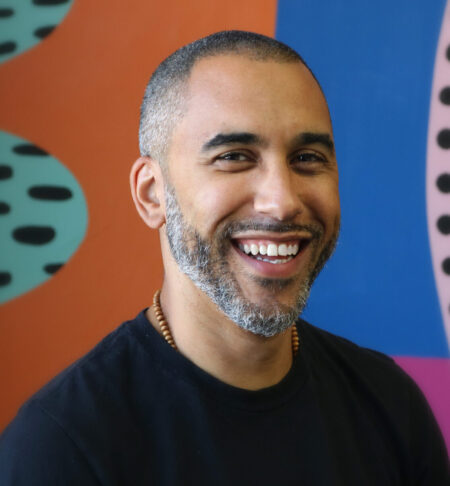For the first time, a producer leads PBS
PBS’s new president is Pat Mitchell, departing head of CNN Productions and
Time Inc. Television, whose appointment was ratified by the PBS Board Feb. 4.
She is the first producer to take PBS’s top job, and is as comfortable in
front of cameras as behind them, having performed in numerous on-air roles.
Her major projects for CNN included the Peabody-winning Cold War,
a 24-part documentary series that she executive produced with Jeremy Isaacs,
and Millenium: A Thousand Years of History, also supervised with Isaacs.
A search committee reached an “enthusiastically unanimous” decision to recommend
Mitchell as the best candidate for the post last week, said Wayne Godwin,
committee co-chair and president of WCET in Cincinnati. The committee conducted
a second round of interviews with its final slate of candidates the week
of Jan. 28.
PBS officially introduces Mitchell as its president on Feb. 7, at a press
conference in Washington. She also will meet with PBS staff at Braddock Place
that day, and participate in a teleconference with member stations.
“Different people want different things out of this position,” said Godwin,
and Mitchell is a professional who is “very close” to delivering the total
package of desired qualities.
“She has a marvelous, marvelous passion for PBS and public television,” and
has worked in both broadcast and cable television, he elaborated. “She’s
seen as a synergy-builder, listens remarkably well, and places a high value
of appreciation on member stations and their relationships to local communities.” Her
role in producing high-profile documentaries has included exposure to the “planning
and execution of new technologies.”
The search firm Heidrick and Struggles Inc. managed the search for PBS,
according to Godwin. The committee met with 10 candidates in two rounds of
interviews. Godwin declined to say how many applicants were in the committee’s
final pool.
Mitchell had experienced what was probably a professional disappointment
last summer when Time Warner decided not to pursue a new Turner channel for
women that she had been tapped to head. Geraldine Laybourne’s Oxygen Media–backed
by Oprah Winfrey, TV producer Marcy Carsey, Paul Allen and America Online–had
already been announced, joining Lifetime in the niche. The Oxygen cable channel
launched last week.
At CNN/Time Inc. Television, Mitchell developed, commissioned and supervised
production of original nonfiction programming for CNN, TBS Superstation and
other Turner/Time Warner outlets. Over the past five years, her division
oversaw more than 400 hours of documentaries and specials, and 88 hours a
year of National Geographic Explorer and other natural history programs.
For CNN, she was executive producer of the Sunday night documentary series CNN
Perspectives. Previously, Mitchell headed production of two of CNN’s Newstand programs,
televised newsmagazines based on Time Inc.’s magazines Fortune and Entertainment
Weekly.
Mitchell joined TBS in 1992 from VU Productions, an independent production
company at which she developed series, specials and documentaries such as Women
at War: Voices from the Frontlines for A&E, and Shattered Lullabies for
Lifetime.
Her television career began at Boston’s WBZ-TV, where she produced news
specials and anchored, reported and hosted a program for women. Mitchell
went on to work at all three broadcast networks. She was the first woman
to host her own national talk show, Woman to Woman, which she executive-produced
for her own company. In 1984, the show won an Emmy as best daytime talk program.
Swope: PBS needs “consensus builder”
Mitchell succeeds former PBS President Ervin Duggan, who left the job last
October after five-and-a-half years. Duggan charted a course for PBS to operate
more like a “modern media enterprise” by capturing more back-end revenues
from programs, establishing the PBS Sponsorship Group to coordinate underwriting
sales for national programs, and expanding PBS efforts in the Internet and
DBS.
But his efforts to strengthen PBS “on behalf of its member stations” were
regarded with distrust by some station executives, and tensions over local/national
issues became untenable last year under his leadership.
The PBS presidency is a “burn-out job,” interim President John Swope told
television critics during the January PBS Press Tour. Duggan “took it very
seriously. He was very committed, very passionate about it. I think that
probably contributed to his burn-out.”
Swope told critics PBS needs a “consensus builder” as its next leader. “I
think if we can concentrate within public television on our common goals–on
a commitment–that we have so many very talented committed people both at
PBS and our member stations. If we can concentrate on what we have in common
and our common goals, instead of spending time on our disagreements, I think
we can do very well in the future because we have so much public support.”
During the PBS Board’s retreat in Key Largo last weekend, where the search
committee presented its choice of Mitchell, board members and more than a
dozen station executives were to discuss strategic issues, which were a major
stumbling block in Duggan’s relations with board members.
Mitchell was expected to join the board and its guests for dinner Saturday
night, according to Godwin.







